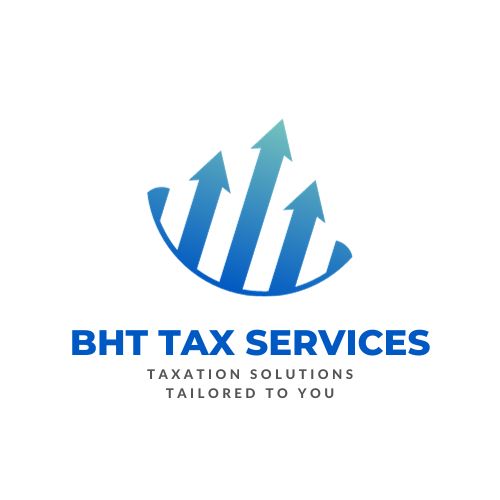
Navigating the complexities of tax filing can be a daunting task for individuals and businesses alike. With ever-changing tax codes, deductions, and potential penalties, it’s no surprise that many turn to tax accountants for help. But is it worth the cost? Let’s explore the benefits, potential savings, and key factors to consider when deciding whether hiring a tax accountant is right for you.
What Does a Tax Accountant Do?
A tax accountant is a professional trained in the preparation and filing of tax returns. Their expertise extends beyond basic calculations—they ensure compliance with tax laws, identify eligible deductions, and help optimize your financial outcomes. Tax accountants specialize in various areas, including:
- Individual Tax Preparation: Assisting individuals in filing personal income taxes while maximizing deductions and credits.
- Business Tax Services: Helping businesses navigate corporate tax laws, including payroll taxes, VAT, and more.
- Tax Planning: Advising clients on strategies to reduce future tax liabilities.
- Audit Representation: Providing support during IRS audits and ensuring proper documentation.
The Benefits of Hiring a Tax Accountant
1. Save Time and Reduce Stress
Is It Worth Paying a Tax Accountant? Tax preparation can be time-consuming, especially if your financial situation involves multiple income streams, investments, or complex deductions. A tax accountant can handle these intricacies, freeing up your time to focus on personal or professional priorities.
2. Ensure Accuracy and Compliance
Mistakes on your tax return can lead to penalties, delays in refunds, or audits. Tax accountants are well-versed in current tax codes and ensure that your filings are error-free and compliant with all regulations.
3. Maximize Deductions and Credits
One of the primary reasons people hire tax accountants is to identify deductions and credits that might otherwise be overlooked. For example, homeowners, small business owners, and investors often qualify for specialized deductions that can significantly reduce their tax burden.
4. Strategic Tax Planning
A tax accountant doesn’t just file returns; they offer long-term tax planning strategies tailored to your unique financial goals. Whether it’s deferring income, investing in tax-advantaged accounts, or timing deductions, these strategies can result in substantial savings over time.
5. Expertise in Specialized Situations
If you’ve experienced a major life event—such as selling property, starting a business, or inheriting assets—a tax accountant can guide you through the tax implications and help you make informed decisions.
When Should You Hire a Tax Accountant?
Is It Worth Paying a Tax Accountant? While some individuals can manage their taxes with software, others benefit significantly from professional help. Consider hiring a tax accountant if:
- Your Financial Situation Is Complex: This includes multiple income sources, foreign investments, or business ownership.
- You’ve Had a Major Financial Event: Events such as marriage, divorce, inheritance, or starting a business often come with unique tax implications.
- You’re a Business Owner: Managing payroll taxes, expense deductions, and quarterly filings can be overwhelming without expert guidance.
- You’re Facing an Audit: If the IRS flags your return, having a tax accountant can make the audit process smoother and less intimidating.
How Much Does a Tax Accountant Cost?
Is It Worth Paying a Tax Accountant? The cost of hiring a tax accountant varies based on the complexity of your return and their level of expertise. On average:
- Simple Tax Returns: $150–$300
- Complex Individual Returns: $400–$1,000+
- Small Business Returns: $750–$2,000+
- Consultation Fees: Some tax accountants charge hourly rates ranging from $100 to $400 per hour for consultations or additional tax services.
While the upfront cost may seem high, the potential savings in deductions, credits, and avoided penalties often outweigh the expense.
DIY vs. Hiring a Tax Accountant
Advantages of DIY Tax Filing
- Cost-Effective: Tax software is generally cheaper than hiring a professional.
- Convenient: Modern tax software simplifies the filing process with guided steps.
- Suitable for Simple Returns: If your finances are straightforward, DIY filing might be sufficient.
Advantages of Hiring a Tax Accountant
- Personalized Service: Tax accountants tailor their advice to your specific situation.
- Handles Complex Situations: They are better equipped to manage intricate financial scenarios.
- Audit Support: Professional representation during an audit can provide peace of mind.
For many, the decision boils down to weighing the complexity of their financial situation against the cost and potential benefits of hiring a professional.
The Risks of Not Hiring a Tax Accountant
Failing to seek professional help when it’s needed can lead to costly mistakes. These include:
- Missed Deductions: Overlooking eligible deductions could result in paying more taxes than necessary.
- Errors and Penalties: Even minor errors can trigger penalties or delays in processing.
- Increased Audit Risk: Improper documentation or questionable entries may raise red flags with the IRS.
- Lack of Tax Strategy: Without expert guidance, you might miss opportunities to minimize future tax liabilities.
How to Choose the Right Tax Accountant
If you decide to hire a tax accountant, here are some tips to ensure you find the right fit:
- Check Credentials: Look for Certified Public Accountants (CPAs) or Enrolled Agents (EAs) with experience in tax preparation.
- Ask for References: Personal recommendations and reviews can help you gauge their reliability.
- Understand Their Fees: Request a clear breakdown of costs before committing to their services.
- Assess Their Expertise: Choose someone familiar with your specific tax situation, such as small business taxes or international income.
Conclusion: Is It Worth Paying a Tax Accountant?
For individuals and businesses with complex financial situations, hiring a tax accountant is often a worthwhile investment. The time savings, reduced stress, and potential tax savings frequently outweigh the cost of professional tax services. Additionally, their expertise ensures accuracy, compliance, and strategic planning that can benefit your finances in the long run.
If your taxes are straightforward, you may find tax software sufficient. However, for those navigating intricate tax scenarios or looking to optimize their financial outcomes, the assistance of a tax accountant is invaluable.
